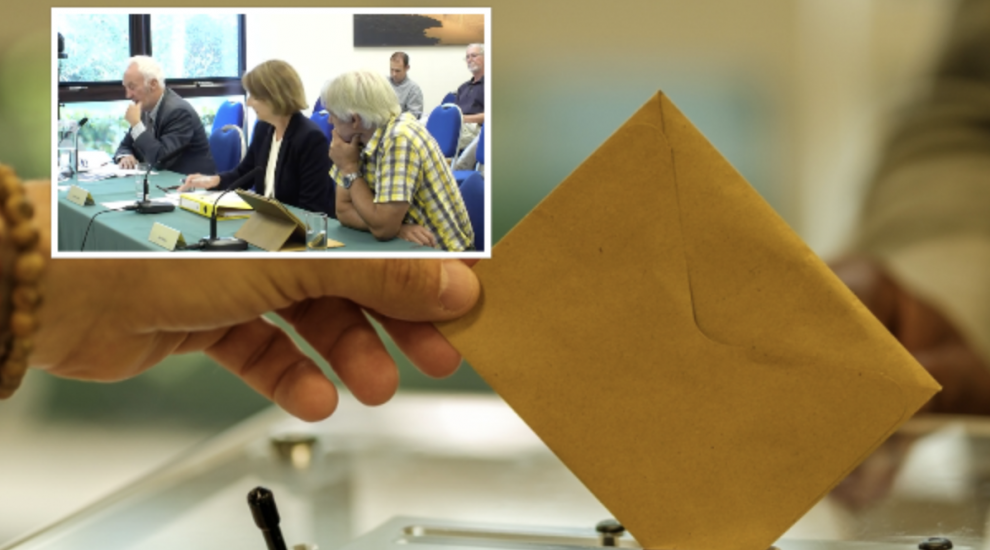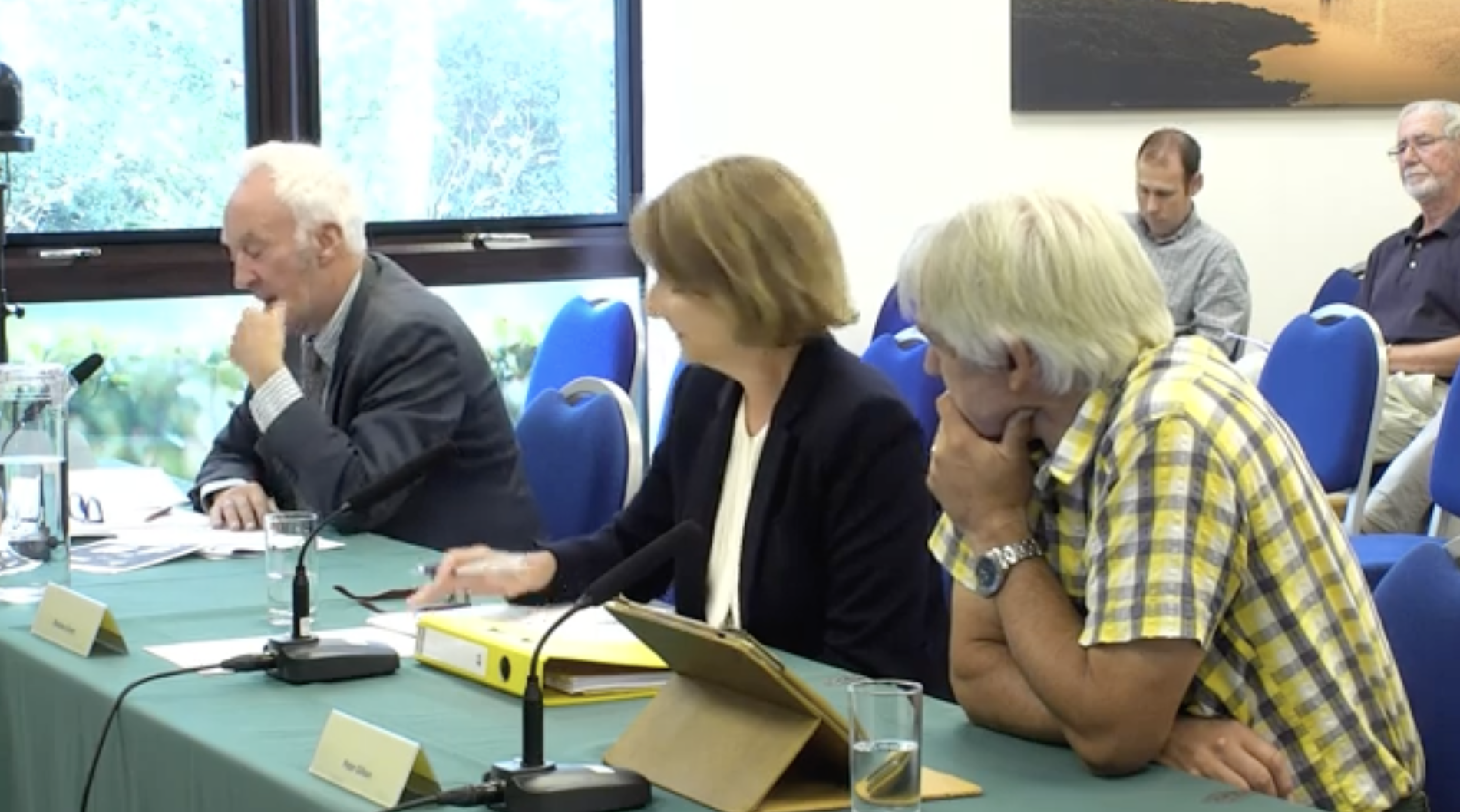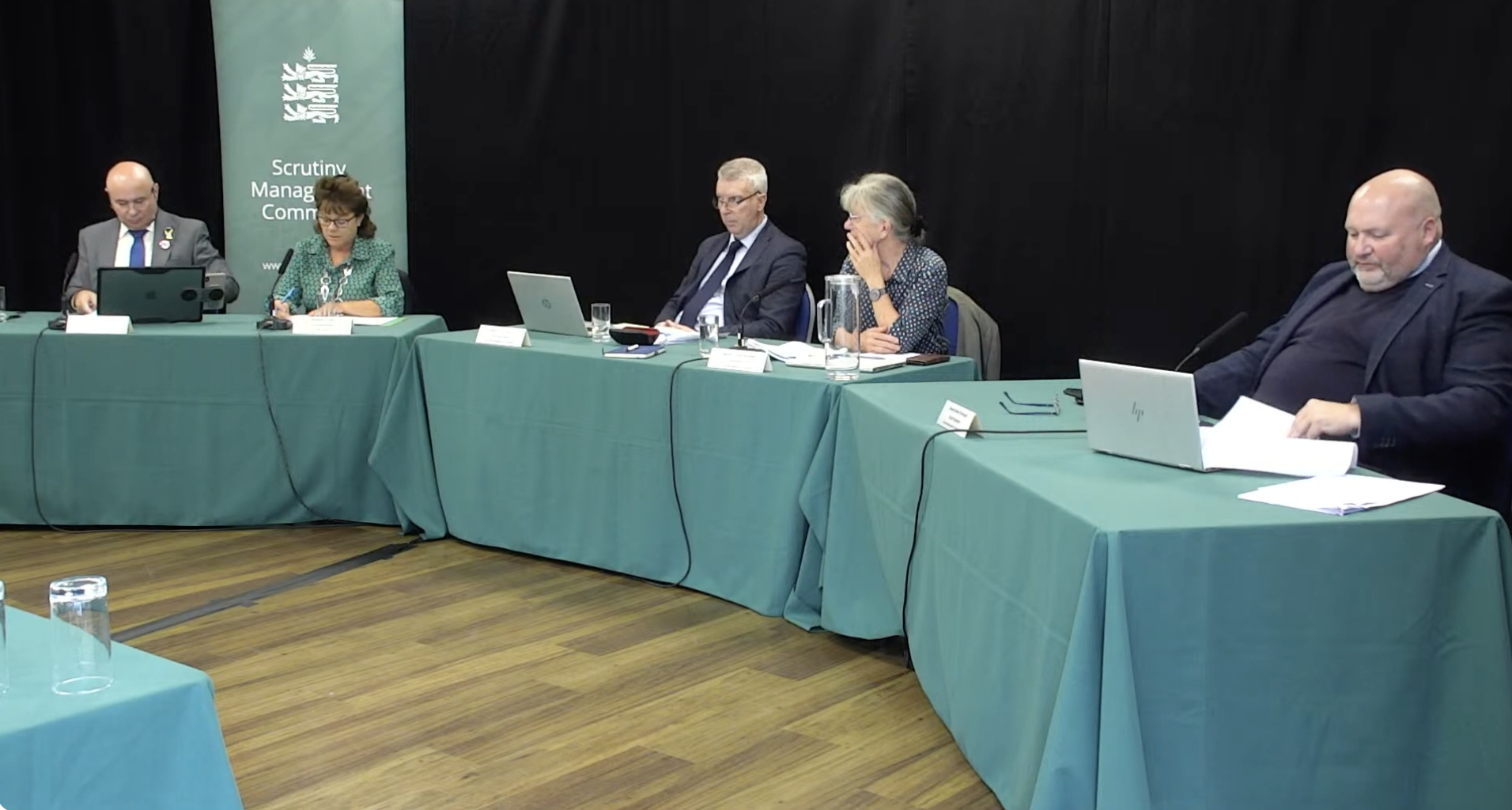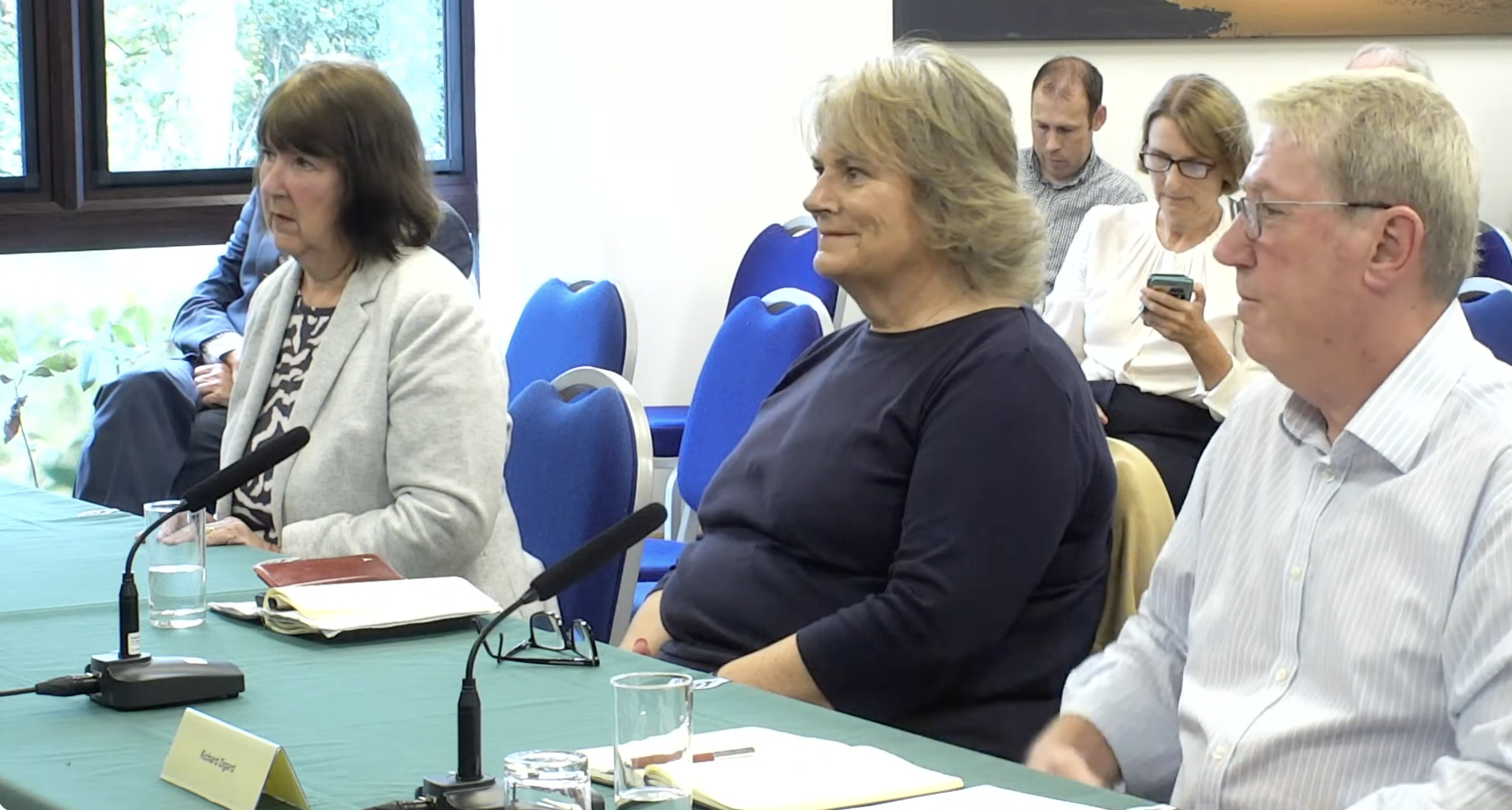


The make up of our current parliament would not be any different had we stuck with parish polls rather than introducing Island Wide Voting, according to one man who has served the island as a Douzenier, Constable and Deputy.
Peter Gilson was one of six people giving evidence to a Scrutiny Management hearing yesterday on the success or otherwise of Island Wide Voting.
He was asked to answer questions on the topic alongside Alistair Doherty; a retired clerk of the House of Commons, and advisor to the Scrutiny Management Committee, and Shelaine Green; Chair of Women in Public Life.
Ms Green explained that the majority of candidates at the 2020 election were men in their 50s and 60s with a reduction in the number of younger, older and female candidates. She said that couldn't be attributed to the fact island wide voting was introduced in 2020 as one election did not provide enough evidence to draw any conclusions from the demographics

Pictured (l-r): Alistair Doherty, Shelaine Green, and Peter Gilson.
Mr Gilson said that in his opinion, the fact that island wide voting replaced the former district system in 2020 did not change the outcome of the election.
"Looking at the candidates and who got elected, I don't think the composition of the States would have been significantly different, had the same people been elected, or the same candidates stood under a parochial or district system.
"It's how you attract the people of the right calibre rather than the electoral system."
Mr Gilson said he thought the reason for the large number of candidates in 2020 - 120, compared to around 80 in 2016 - was partly a "novelty value" under the new system, while other candidates may have seen it as an easier route to election than the past district system.
"That was a big weakness with the parochial and district systems, with some people virtually guaranteed to regain their seats and it made it difficult for new people to come in," said the former politician who also predicted that the next election - due to be held in 2025 under the island wide system again - will see fewer candidates standing for the States.
Mr Gilson, Ms Green, and Mr Doherty were answering questions posed by Deputies Yvonne Burford, Simon Fairclough, and Carl Meerveld, former Deputy Michelle Le Clerc and civil servant Mark Huntingdon.

Pictured (l-r): Deputy Carl Meerveld, Michelle Le Clerc, Mark Huntingdon, Deputy Yvonne Burford and Deputy Simon Fairclough.
The two-day Scrutiny hearing started yesterday morning, with a panel of witnesses made up of current and former deputies and douzeniers.
Deputy Sue Aldwell; who has also been a Constable for Torteval, sat alongside former Deputy and Conseiller Mary Lowe, and Vale Douzenier and former Press editor Richard Digard.
Each of them gave examples of where they think island wide voting has failed, with a "disconnect" caused between the parishes and the States.
"From a parish perspective, it's been something of a disaster," said Mr Digard, while Deputy Aldwell said "no one likes island wide voting" and of everyone she has spoken to in the 'upper parishes' "they would all like to go back to parish or district voting, or a hybrid".
Mrs Lowe told the Scrutiny panel: "I've always been for island wide but when you see the lack of experience in the States, I think maybe we've missed out there and we should have done some island wide and some for the parishes."

Pictured (l-r): Mary Lowe, Deputy Sue Aldwell, Richard Digard speaking at yesterday's Scrutiny hearing.
The second panel focused less on the success or failures of island wide voting, with more discussion around the outcomes themselves.
Some aspects of the 2020 election which the second panel thought had worked very well during the first island wide election had included the 'speed husting' events which Ms Green said was hugely beneficial to voters who were able to speak to as many candidates as possible.
Mr Doherty - with experience working in UK politics - reminded the panel that the 79% turnout for the 2020 election was the best the island has ever had, which added a legitimacy to the vote.
He had thought that the incumbents would be better served by island wide voting than newcomers, but with 11 sitting deputies losing their seats at the 2020 polls Mr Doherty said voters used island wide voting to "punish" those whose policies they disagreed with.
Mr Gilson explained to the panel how he thinks the ongoing discussions over Guernsey's model of secondary education would have been resolved as long ago as 2017 or 18 if the previous election had been conducted on an island wide basis rather than through the then-district system.
With former-deputy Robert Sillars losing his seat in the South East in 2016 after voting to close St Andrew's Primary School while Education Minister, Mr Gilson strongly believes he would have retained votes elsewhere in the island.
"His vote in St Andrew's collapsed, but in St Martin's it held up and I'm making the assumption that if there had been island wide voting he would have got back in, in which case he'd have been back as Education Minister and the proponents of the two school model would not have been able to take him down in the way in which they had taken Paul Le Pelley down. I think we would not have wasted two years on the two-school model, we'd have saved millions of pounds, and we would have an education system which is not in the state of flux that it is now.
"There's a few assumptions in there but I think there's logic to all of them," he said.
The Scrutiny hearing is aimed at collating feedback on the success of the first fully island wide election in 2020, ahead of the next scheduled general election in 2025.
1400 people had responded to a survey for the Scrutiny Management Committee, with other witnesses submitting evidence during the second half of this morning's public hearing and more due to speak on Wednesday during a second two-hour discussion.
Comments
Comments on this story express the views of the commentator only, not Bailiwick Publishing. We are unable to guarantee the accuracy of any of those comments.